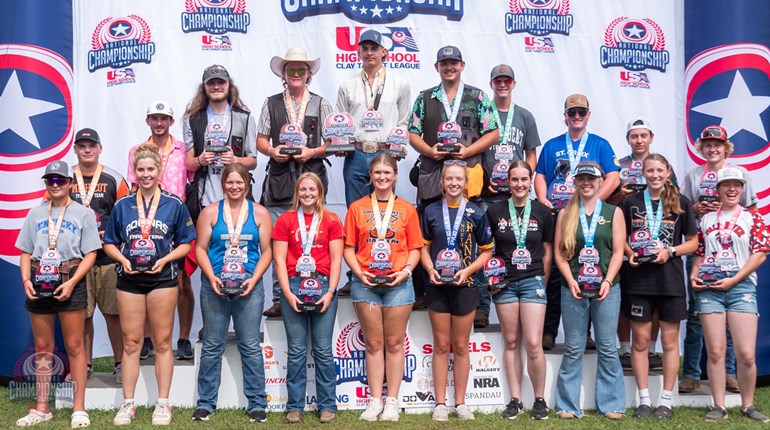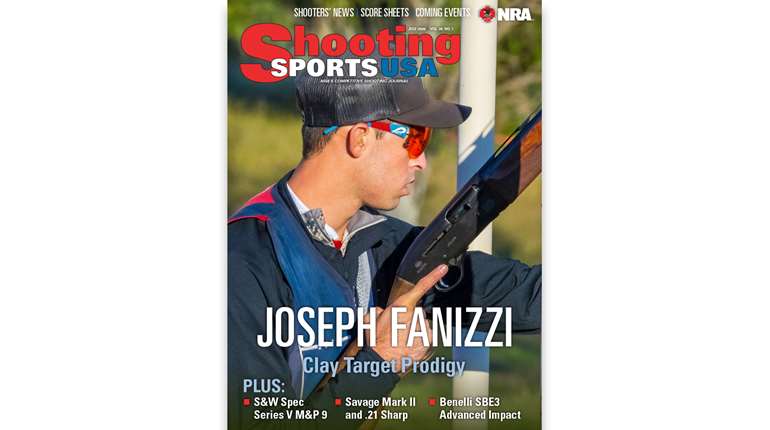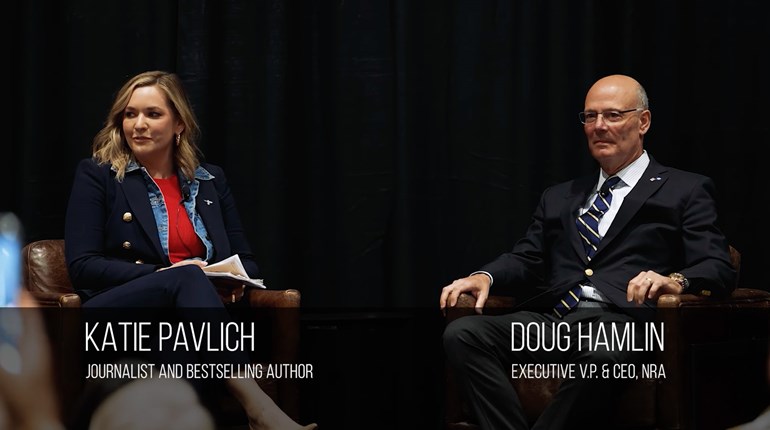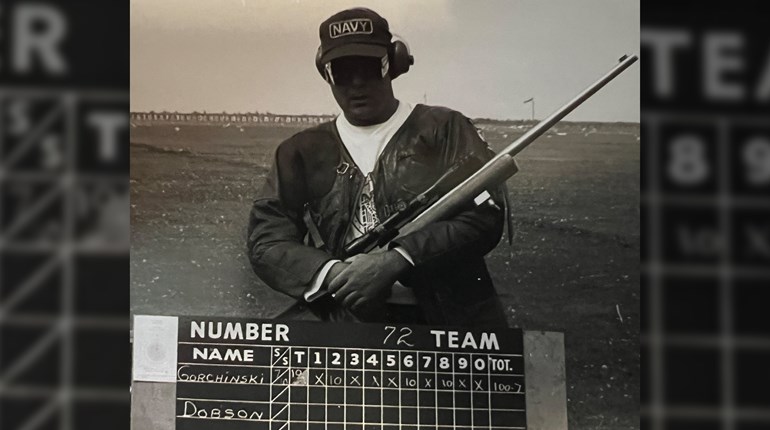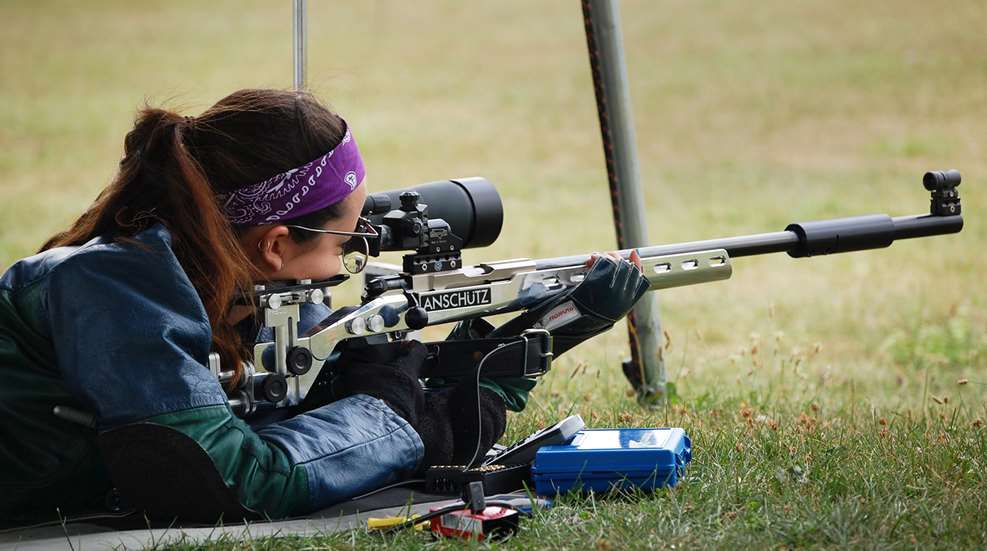
Readers should also check out Dr. Raymond Prior’s previous articles in SSUSA on how to properly set goals and closing a match.
Have you ever noticed that some shooters always seem to find a way to overcome the odds and put themselves in a position to win? Have you ever noticed that those people always seem to be confident, even when things aren’t going their way? If you have, then I’m sure you’ve also noticed the people who always seem to struggle with confidence, especially when they need it the most. Despite plenty of physical ability and no matter how much the odds are seemingly stacked in their favor, they seem to get in their own way and end up losing more than often they should. This discrepancy highlights how important confidence is and why it is without a doubt an athlete’s most precious resource.
Here’s why confidence is important. Given two shooters of similar skill, the more confident shooter will win almost every time. Furthermore, as the level of competition increases, confidence becomes even more important because the difference in physical skill between athletes decreases. In fact, at the highest levels in sports, the physical differences between athletes are minimal and the effects of confidence are maximized. You don’t have to be an experienced sport shooter or coach to understand that shooters don’t perform well and win without confidence.
So how is it that some people have such stable confidence while others seem to lack confidence? The reason many athletes, and people for that matter, struggle with confidence is because most people don’t know where confidence really comes from, and thus, do not know how to build it or maintain it.
Most people, not just athletes, believe that confidence is something you are either born with or without. To date, I’m still waiting to see a news headline proclaiming “Baby Born With Great Confidence.” Despite decades of research examining genetics, there is absolutely no scientific evidence to support the idea that confidence is a trait that anyone is simply born with.
Many people also believe that confidence is something bestowed upon an athlete after an athlete has performed perfectly for a long period of time or after winning repeatedly. Another misconception is that being confident means puffing up your chest and acting like nothing bothers you. These misconceptions about where confidence comes from leave many shooters with unstable confidence and inconsistent performances.
But the good news for athletes in any sport is that these misconceptions about confidence are, of course, false. The truth is, confidence can be learned and it’s within your control. Although winning and performing well in the past can be sources of confidence, they are not required, nor are the stable sources of confidence because no one performs well and wins all the time. In fact, using past performances as your only source of confidence is a shaky source at best.
The true source of confidence for any athlete is what they choose to think about. The only real difference between people who are consistently confident and those who struggle with confidence, is what they are telling themselves. Confidence does not come from the events we experience (good or bad), the circumstances we face (favorable or unfavorable), or from other people’s opinions about us (again, good or bad). It comes from what we tell ourselves about these things. These sources create a weak and unstable foundation to build confidence upon because they are not controllable and often short-lived. Strong and stable confidence comes from controlling what we think about, specifically our self-talk.
Here are two challenges you can take on to begin controlling what you think about and ultimately build consistent confidence.
Challenge 1: Stop Complaining, Blaming, and Making Excuses
In short, what you say out loud reflects what you think and influences what you will think in the future. With this connection between our thoughts and our words, it’s not surprising that researchers find that people who complain, blame others, and make excuses also have significantly lower confidence and significantly more self-sabotaging behavior than those who don’t. Complaining, blaming, and making excuses chips away at confidence and are some of the worst habits any athlete can develop.
The first step to controlling what you think about is to control what you say to yourself and to others about the events you experience, the circumstances you face, and the people you interact with. When we become more aware of what we are saying, we can start choosing to think about and say things in a manner that will build confidence.
Try this challenge. For 10 days, do not complain, blame anything or anyone, or make an excuse for anything. Not your shooting, not the weather, not the bad drivers on the road, not your coaches or parents, nothing at all. Be honest with yourself. Any time you catch yourself complaining, blaming, or making an excuse, start again at day one. Even if you get to day nine and you catch yourself complaining about a bad shot, start over again.
What you will notice is how often we let our speech lead to unproductive thoughts that negatively impact our confidence. You’ll also notice how often we take little annoyances and blow them out of proportion and how easy it is to play the victim to the challenges in sport and life instead of taking responsibility for your own confidence and responses. It takes most people about a month to go 10 days without complaining, blaming, or making an excuse, but once they do, they have begun to build the foundation for controlling what they think about in a way that promotes personal responsibility for sustainable confidence.
Challenge 2: Quit Hitting Yourself
If you have an older sibling, you’ve probably been held down and force-fed several bites of your own knuckle sandwich while hearing your sibling say, “quit hitting yourself.” Thankfully, once we’re grown, we are strong enough to defend ourselves from someone subjecting us to our own punches. Building confidence through self-talk works in a similar fashion.
When we really break down the process of building confidence it’s quite simple. Confidence in large part comes from what we say to ourselves. At any point in time we are having a conversation with ourselves. When we have negative self-talk and say things to ourselves like “I always choke” or “I’m not worth other people’s time” or “what will other people think about me if I make a mistake?” it is like you’re hitting yourself, only this time the only person causing you to hurt yourself is you.
Once you begin controlling what you think about external events and circumstances, the next step is to be more aware of and control your thoughts about yourself. Try this challenge. For one full week of shooting, be as negative as you can about yourself and your shooting. Point out every little mistake you make, criticize yourself for even the smallest things, and point out all your flaws as a shooter and do this as often as you can. Basically, be your own bully and make yourself hit yourself with as much negative self-talk as you can.
I make a deal with the professional athletes I work with who take this challenge. If they can go one week with as much negative self-talk as possible about their performance and tell me they honestly feel more confident at the end of that week, I’ll give them $1,000.
However, if their week of negative self-talk leads to decreased confidence and worse performance, they have to give me $1,000. I’ve had many clients try this challenge certain that they can withstand a week of self-induced negativity. In all my years of consulting, I have never lost this challenge. The reason I’ve never lost this challenge is because talking poorly about yourself to yourself is the most direct route to eroding your own confidence. Sadly, many sport shooters struggle with confidence because their self-talk often resembles the self-imposed negative self-talk in this challenge.
What this challenge highlights is the importance of your inner dialogue. The good news is that any shooter can control his or her confidence by being selective with their self-talk. When you’re shooting, or even thinking about shooting, monitor your self-talk. Ask yourself whether the conversation you’re having in your head is positive and productive or negative and defeating your confidence. If your self-talk leads to doubt, fear, anger, frustration, or hurts your efforts to be confident, then make a conscious choice to let go of that conversation and start thinking about something that makes you feel confident. It doesn’t matter if you’re facing a difficult shot or examining your entire career, to be confident you have to talk to yourself in ways that build confidence. Talking to yourself this way can be done by anyone committed to being more confident, but it requires effort, discipline, and for you to choose to stop hitting yourself.
Moreover, be sure your self-talk is your own. Confidence becomes even more difficult to build when we let what other people say about us or the expectations other people set for us become our inner dialogue. I’ve been working with elite athletes for nearly a decade. Even the best athletes in the world find it extremely difficult to remain confident when they listen to all the people criticizing them on television and social media. We are all the owners and operators of our own confidence. When we give away our inner dialogue to things we can’t control, like outcomes and the opinions of other people, we are effectively outsourcing our confidence. The key to building and maintaining confidence is to take ownership of it with what we think and say to ourselves. It’s called self-talk for a reason, because it’s yours.
The reality is that shooting, and life for that matter, are filled with ups and downs, successes and setbacks. Those who control their inner dialogue by staying positive and productive despite the events and outcomes they experience, circumstances they face, or the opinions of others, build and maintain stable confidence. Those are the people who get out of their own way and get the most out of their performances.
About the Author
Dr. Raymond Prior is the author of Bullseye Mind: Mental Toughness for Sport Shooting. As one of the country’s top peak performance professional, he has nearly a decade of experience educating athletes and coaches about building mental toughness.
Raymond works with athletes, teams, and coaches at professional, Olympic, NCAA, amateur, and youth sport levels. His clients include professional athletes, Olympic gold medalists, individual and team National Champions, National Coach of the Year Award winners, individual and team Conference Champions, and countless NCAA All-Americans in a variety of sports.
Raymond has a firm commitment to growing sport shooting in its many forms and he continues to provide peak performance training to many college shooters and teams including the 18-time National Champion WVU Rifle team, Olympic level shooters domestically and internationally, and shooters of all levels who want to perform more consistently and enjoy shooting more. Visit Dr. Prior’s website at www.rfpsport.com.















